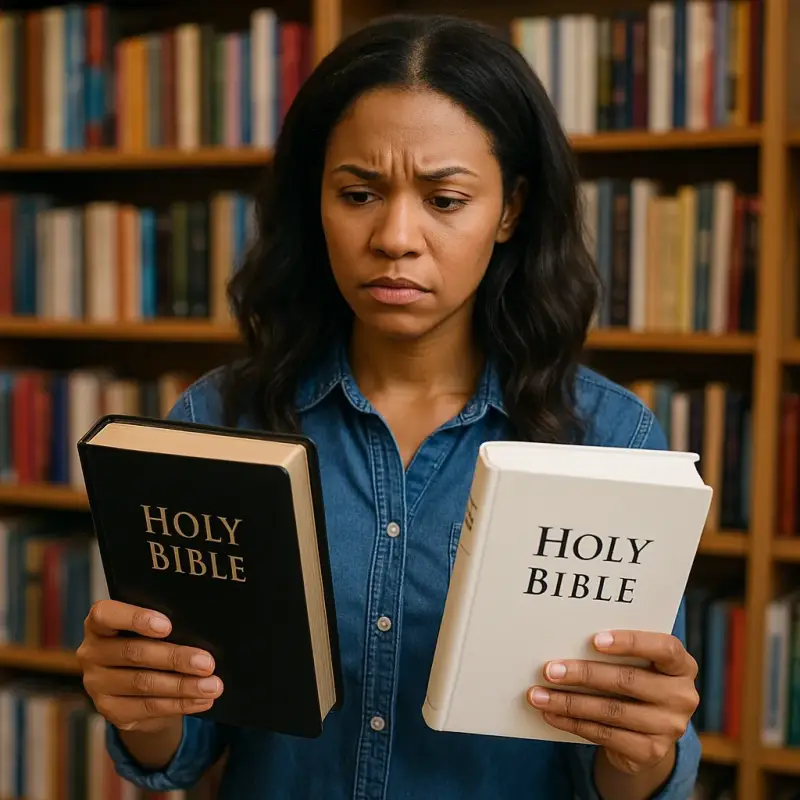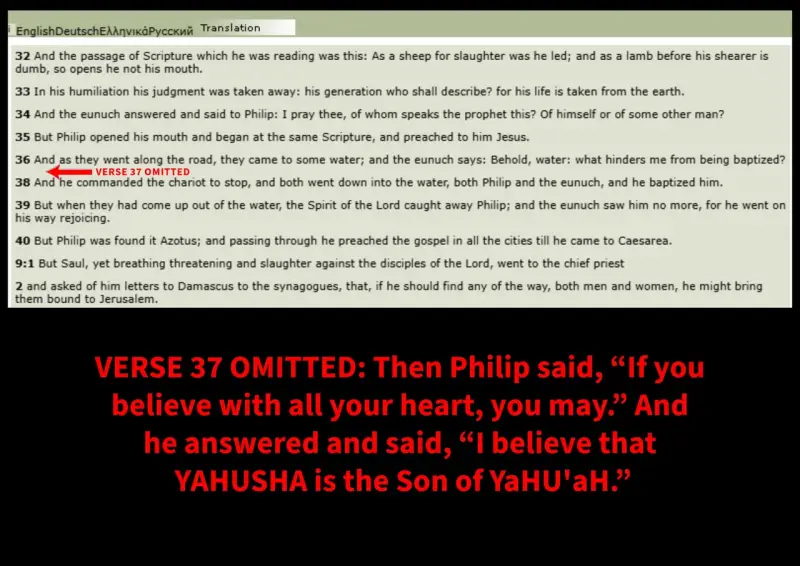People often ask, “What Bible should I buy?” I declare with absolute certainty: I cannot recommend one. No one can. The reason stands irrefutable. Ever since the wicked were able to come against the tribes of Ya'aqob for our ancestors’ repeated rebellion, a calculated corruption commenced. Their defiance rendered them defenseless—a fact I affirm without question. That exposure permitted evil to infiltrate and distort the sacred texts, entrusted exclusively to YaHU'aH’s firstborn, as Exodus 4:22 proclaims: “Yashar’al is my firstborn son.”

Here's the Truth They Hid from You
No one in the history of the ancient scrolls ever recommended a Bible or a translation of the Torah. It was never commanded to choose a version, edition, or translation. It was commanded to read, keep, and obey the Law (Torah). This is exactly what YAHUSHA did. His ministry began with one foundational call: “Repent.” That means turn away from Torahless living. Then, and only then, believe in the Redeemer (see Mark 1:15). He pointed people back to the Law, not to Roman-approved scrolls.

To recommend a Bible is to put your name on it.
“Savage wolves will come in among you, not sparing the flock. Even from your own number men will arise and distort the truth in order to draw away disciples after them” (Acts 20:29–30)?They used the text—what people call the Bible today. And they didn’t merely misuse it—they altered and excluded known truths. This is not new; it is what was foretold.
English, forged from West Germanic roots and carried to Britain by Anglo-Saxon settlers between the 5th and 7th centuries AD, gave rise to the King James Bible. Yet it stands worlds apart from the language spoken when YaHU'aH toppled the Tower of Babel (around 2242–2206 BC, Genesis 11:1–9). That was when one language united man to rebel—and He shattered it.

Today, English reigns as the language of deception.
Yet Yahusha said they were of their father, the devil (John 8:44). They had access to the words but were devoid of the Ruach. In fact, they were so blind that they couldn’t even recognize Yahusha as the Son of YaHU'aH Almighty. It took Judas, one from among them, to point Him out with a kiss (Matthew 26:48–49). Their lack of discernment proves that having scrolls or head knowledge is not the same as having revelation.

How many Bible readers have spent their whole lives in church, yet never once connected the curses in Deuteronomy 28 to the horrors of the Trans-Atlantic slave trade?


The Ethiopian Bible preserves truths the Western canon erased, including entire books and declarations of faith like Acts 8:37.
What does that say about those who trust in corporate translations rather than YaHU'aH’s Ruach?
As Yahusha said, "He who has ears, let him hear."
Why the few? Malachi 3:6 anchors us: “I am YaHU'aH; I do not change.” The texts bend. He does not. Isaiah 52:6 confirms: “My people will know My name…”
No book, no translation, no colonial version can chain the voice of the Most High. The last exodus proves it: when the tribes of Ya'aqob were enslaved in Egypt, they spoke their captors’ language. Yet YaHU'aH revealed His name to Mosheh (Exodus 3:14) and delivered them. He will do it again. He is doing it now.
He doesn’t need your Bible. He needs your obedience.
And that—that is the truth no translator can erase. Because YaHU'aH is not discovered through a publisher’s license. He is not revealed through a man-made index. He is not bound by red-letter editions or copyright footnotes. He reveals Himself to the humble, the seeking, and the obedient.


Add comment
Comments